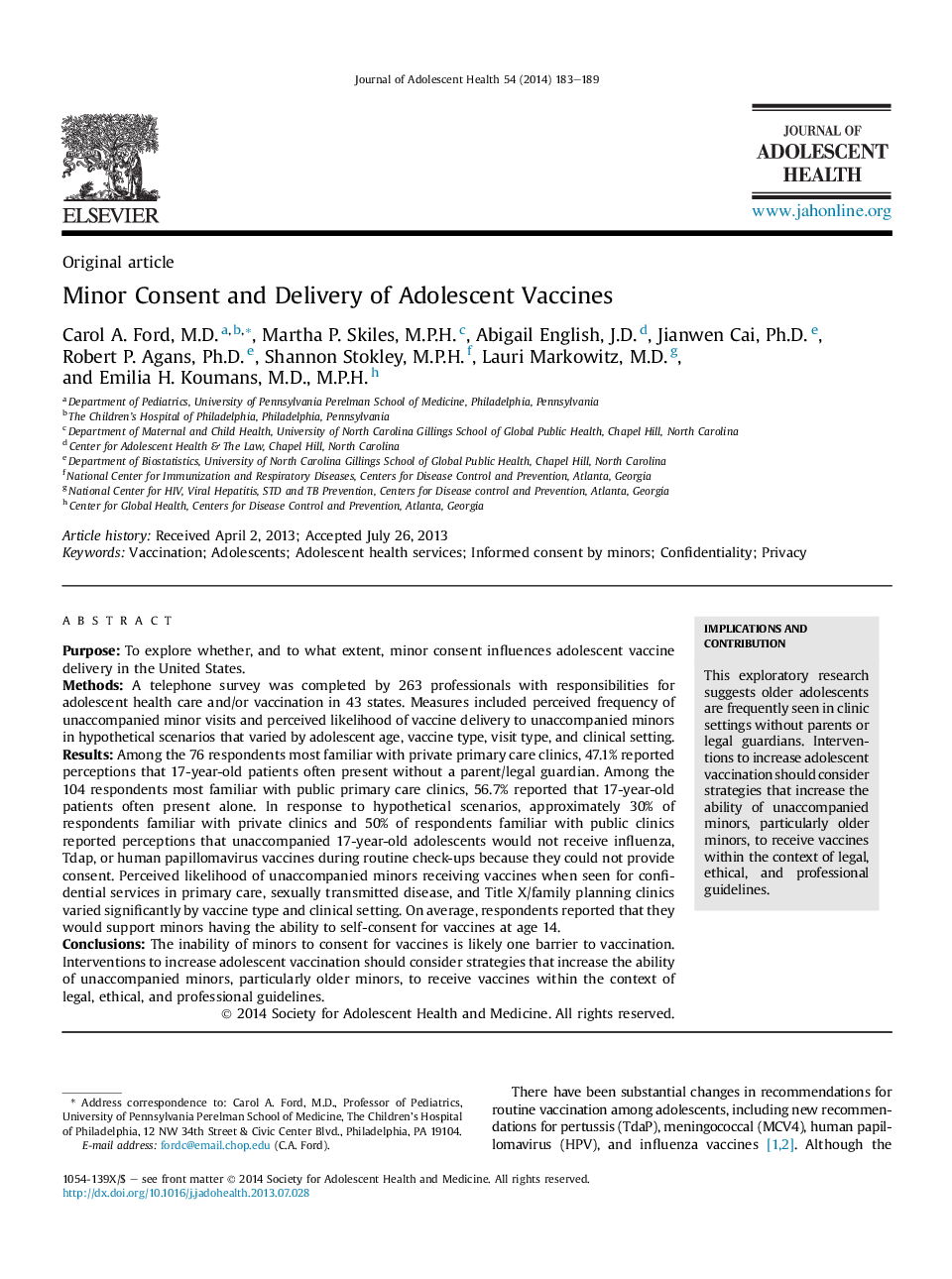| کد مقاله | کد نشریه | سال انتشار | مقاله انگلیسی | نسخه تمام متن |
|---|---|---|---|---|
| 1079089 | 950483 | 2014 | 7 صفحه PDF | دانلود رایگان |
PurposeTo explore whether, and to what extent, minor consent influences adolescent vaccine delivery in the United States.MethodsA telephone survey was completed by 263 professionals with responsibilities for adolescent health care and/or vaccination in 43 states. Measures included perceived frequency of unaccompanied minor visits and perceived likelihood of vaccine delivery to unaccompanied minors in hypothetical scenarios that varied by adolescent age, vaccine type, visit type, and clinical setting.ResultsAmong the 76 respondents most familiar with private primary care clinics, 47.1% reported perceptions that 17-year-old patients often present without a parent/legal guardian. Among the 104 respondents most familiar with public primary care clinics, 56.7% reported that 17-year-old patients often present alone. In response to hypothetical scenarios, approximately 30% of respondents familiar with private clinics and 50% of respondents familiar with public clinics reported perceptions that unaccompanied 17-year-old adolescents would not receive influenza, Tdap, or human papillomavirus vaccines during routine check-ups because they could not provide consent. Perceived likelihood of unaccompanied minors receiving vaccines when seen for confidential services in primary care, sexually transmitted disease, and Title X/family planning clinics varied significantly by vaccine type and clinical setting. On average, respondents reported that they would support minors having the ability to self-consent for vaccines at age 14.ConclusionsThe inability of minors to consent for vaccines is likely one barrier to vaccination. Interventions to increase adolescent vaccination should consider strategies that increase the ability of unaccompanied minors, particularly older minors, to receive vaccines within the context of legal, ethical, and professional guidelines.
Journal: Journal of Adolescent Health - Volume 54, Issue 2, February 2014, Pages 183–189
